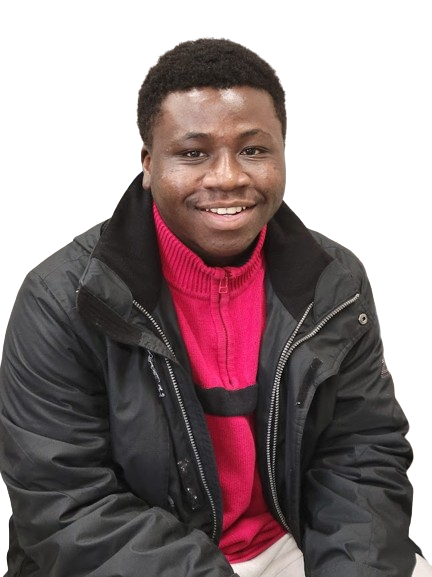If you’re even thinking about research—whether in a biology lab, a clinical setting, a psychology department, or out in the field—you’re already asking the right questions. Entry-level academic research positions are one of the most accessible (and frankly, coolest) ways to get real-world experience after graduation. They teach you how science actually works, how discovery happens, and how teams solve problems when the answers aren’t in the back of the textbook.
But here’s the thing: research isn’t just for students with a 4.0 GPA or decades of lab experience. And it’s definitely not only for seniors. Whether you’re a curious first-year, a junior feeling behind, or a graduating senior wondering what’s next—you’ve got options. Let’s talk about how to get started and why these positions are worth exploring.
What Is an Entry-Level Research Role?
Entry-level research positions are essentially your gateway into the world of professional discovery. Common job titles include:
- Research Assistant
- Laboratory Technician
- Clinical Research Coordinator
- Undergraduate or Post-Bacc Fellow
These roles might involve organizing data, helping with lab experiments, assisting clinical teams, or reviewing academic literature. Some are hands-on in wet labs; others are more analytical and computer-based. Many are offered through universities, hospitals, nonprofit research institutes, or government agencies.
You Don’t Need a Perfect GPA—Really
“I probably can’t get a research job unless I have a 4.0.”
– Every student ever (who’s been misinformed)
That’s just not true.
While strong grades can help, many hiring managers care more about your curiosity, organization, and persistence. Some of the most effective researchers aren’t straight-A students—they’re the ones who ask great questions, troubleshoot patiently, and show up consistently.
So yes—apply, even if your GPA isn’t perfect. Your interest and attitude can go a long way.
How Students of Any Year Can Prepare
Whether you’re just starting college or approaching graduation, you can start laying the groundwork for a research career right now:
🎓 First-Years & Sophomores
Attend student research symposia or guest faculty talks. Ask questions. Join science or pre-health clubs. Take your lab classes seriously—they build your foundation and show future mentors you’re engaged.
🔬 Juniors
This is prime time to gain direct experience. Talk to professors about helping in their labs. Apply for summer programs like NSF REUs or SURF. Look for research-for-credit or independent study options.
🎓 Seniors & Recent Graduates
You’re in a great position to apply for full-time entry-level roles. These positions are often posted year-round. Use job boards like Indeed, LinkedIn Jobs, and Handshake to find them.
Where to Find Positions (And How to Stand Out)
Start with:
- 🔍 Indeed: Entry-Level Research Assistant Jobs
- 🔍Handshake: College student inspired
- 🔍 LinkedIn Jobs: Research Roles
- 🔍 Glassdoor: Entry-Level Research Positions
- 🔍 Bi-weekly LU Career Community Newsletter: Tailored opportunities from the Career Center (Sign-up)
Also, don’t underestimate your own campus. Talk to your professors, department coordinators, or career center staff (book an appointment). Research roles are often filled internally before they’re posted publicly.
When applying:
- Tailor your resume to highlight lab coursework, writing skills, or past internships
- Write a brief, specific cover letter showing interest in that lab’s work
- Ask for strong references from faculty who know your work ethic
A Few Real Examples (You Can Apply to Right Now)
Here are a few open roles (note: listings change fast, so check frequently):
- 🧬 Clinical Research Assistant at Dana-Farber Cancer Institute (Boston) – supporting oncology studies, patient interaction
- 🧠 Neuroscience Research Assistant at NYU Langone (NYC) – EEG and behavioral work on memory
- 🧫 Molecular Biology Tech at UC San Diego – genetic experiments in a university lab
Tip: Set up alerts on these platforms so you never miss a posting!
Real Talk: Research Isn’t Always Glamorous
There are days you’ll do repetitive data entry. There will be weeks when experiments fail. You might run the same protocol 20 times.
But there are also breakthrough moments. Times when you contribute to something no one’s ever known before. Times when your PI says, “This figure is going in the paper—and you’re listed as an author.”
The growth is real, and the impact is lasting.
✨ Your Next Chapter Starts Here
If you’re still wondering whether research is for you—let this be your sign: It is. The path to becoming a scientist, doctor, innovator, or data analyst often starts with a single role. One application. One professor who says yes.
You don’t have to have all the answers. You just need to be ready to ask great questions.
So take the leap. Hit submit. Reach out to that lab. Your journey of discovery is just beginning.

Dennis Boakye ’26 is a junior with a major in Neuroscience and a minor in Mathematics. He is also a co-president of the Neurolawrence Club and the Synthetic Biology Club, and the treasurer for the American Medical Student Association (AMSA, Lawrence Chapter) and the Black Student Union (BSU). Dennis is the current career peer educator for the Health and Medicinal Professions (HMP) and the Physical and Natural Sciences (PHN) career communities at Lawrence University. Connect with Dennis on LinkedIn.
